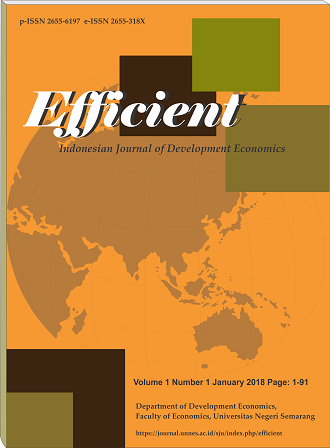The Impact of Social Forestry Utilization Permit (IPHPS) Towards the Community Income
Abstract
This study aims to determine and analyze the impact of the implementation of the Social Forestry Utilization Permit (IPHPS) on income. The research took location in Perhutani KPH Telawa, Central Java. This study was a descriptive qualitative and quantitative research. The types of data used were primary and secondary data. The method used first was to conduct interviews with respondents. After that, the authors applied statistical descriptive analysis and Multiple Linear Regression. The results point out that the IPHPS has increased the production and income of the Forest Farmer Group. Multiple linear regression analysis proves that the length of the IPHPS received, land area, number of workers, type of partnership, and input costs have a positive effect on income. The types of partnerships that have been executed are in the form of counseling, training, buying products, providing capital assistance, and mentoring. Obstacles faced by Forest Farmer Group receiving the Social Forestry Utilization Permit (IPHPS) are limited access to raw materials, access to capital, market access, and traditional equipment.






